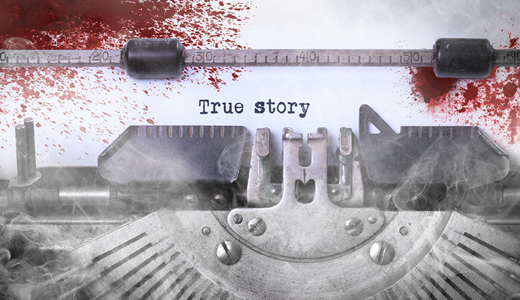When the COVID-19 pandemic was in its infancy, many Americans were both scared and bored, looking for a distraction from the real-world terrors lurking unseen in the air. And what did those Americans turn to for relief?
Sure, many came for the pure insanity of the story: Joe Exotic and his mullet, his male lovers, his over-the-top antics. But strip all that garnish away, and you’ve got a pretty simple murder mystery—a true-crime story festooned with rhinestones and tiger stripes.
According to Netflix, about 64 million households watched Tiger King. For comparison, the most popular traditional scripted show on television in 2020 was an episode of NCIS, which logged 16.8 million viewers.
When it comes to the success of true crime stories, Tiger King is almost as much the rule as the exception. Netflix has turned real murders into a cash cow, churning out dozens of true-crime tales every year. Turn to the world of podcasts, and they’re far and away the most popular genre. Looking at Podcast Insights’ list of the nation’s most popular shows this week, and true-crime podcasts take up the first three spots, and five of the top 10.
Why the fascination?
It’s something that mystifies me, honestly. I’ve never been particularly attracted to true crime docs. I’ve even tried listening to a couple of true-crime podcasts, but I’ve not been charmed yet. Still, plenty of experts have all sorts of reasons explaining why people love them so.
According to health.com, some research suggests that true crime’s most avid watchers and listeners—women—are looking for clues to keep themselves safe. “If you ask people, ‘Why do you like true crime?’ I don’t think most of them would say, ‘I’m learning how to keep it from happening to me,'” Amanda Vicary, an associate professor in the psychology department at Illinois Wesleyan University, told the site. “But I think deep down that may very well be what’s going on.”
On the flip side, other studies suggest that true crime can reassure its fans. They’re safe, after all, while the show’s/podcast’s victim is very clearly not. And, of course, that hypothesis plays on some of the same elements that horror movies do: It allows people to explore darkness—even our own darkness–in a reasonably safe environment.
I think many of us would argue that an attachment to true crime narratives can be unhealthy for those very reasons. Do we really need to explore that darkness? some would ask. And is it really good to be “entertained” by someone else’s pain? Time notes that even as millions of viewers watch a true-crime narrative, mesmerized, the families and friends of those involved in this real-world tragedy can be traumatized all over again.
But I also wonder if not all of our attraction to true crime is as unseemly as its harshest critics might say.
Dorothy Sayers was a Christian writer and the only female member of the famous Inklings literary group (of which C.S. Lewis and J.R.R. Tolkien were also members). And while she wrote plenty of great works about theology and God, she made her name on her murder mysteries—essentially, true-crime stories without the “true.” She believed such stories were deeply moral. Her own protagonist, Lord Peter Wimsey, said in Sayers’ story Strong Poison, “[S]he writes detective stories and in detective stories virtue is always triumphant. They’re the purest literature we have.”
Writing for the Circe Institute, Angelina Stanford digs deeper into why Sayers’ thought murder mysteries were inherently moral works:
[QUOTE] Each story begins in chaos, a dead body, and the entire story moves toward justice and the restoration of order. In a modern world that increasingly denies that there is any order or any real virtues like truth and justice, the detective story creates a longing in us for the very things that our culture rebels against. We hate this chaos created by the dead body and we desperately want to see the truth revealed and justice enacted. We want to see good guys rewarded and bad guys punished. Our souls cry out for order to be restored. [END QUOTE]
It seems to me that part of the charm of these true crime stories is just that: our desire to see justice done. To see order restored.
Like so many aspects of entertainment, true crime taps into our baser instincts and brighter inclinations. But sometimes it shades more in one direction than another. And that’s why we have to think about whether to engage in these stories or not—just as we do with all stories.







Recent Comments